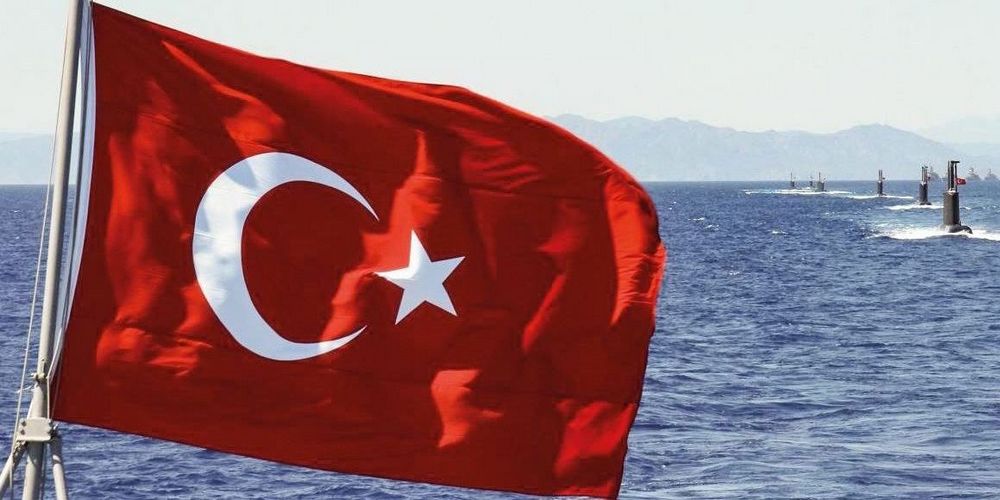Search

Publications
Conceptual contours of Turkey’s policy in the Middle East at the present stage

This article reviews the current Turkish policy in the Middle East through the lens of the discussions about conceptual fundamentals of the foreign policy of Turkey. Over the recent two decades, Turkish specialists in the foreign relations theory have been trying to interpret the foreign political activities of Ankara in the context of the foreign policy approaches dominating in the country. Until 2015, everything was more or less clear about that. Ahmet Davutoğlu then was the main theoretician of the Turkish foreign policy doctrine. But after 2015, the situation started to change, and quite drastically in some issues.
New foreign policy formation: «strategic depth» acquires the «Blue Homeland»
After the double parliamentary elections in 2015, Popular Alliance came into power consisting of the supporters of the ruling Justice and Development Party (JDP) and Nationalistic Movement Party (NMP). The Motherland Party also supported this Alliance. Respectively, if between 2002 and 2015 the power was in the hands of «neo-Ottomans», «moderate Islamists» and Political Islam supporters, today the power passed to «neo-Ottomans-Islamists» and conservative nationalists. It is surprising but the leftist Kemalists support this hybrid formation. However, those should be distinguished from the rightist Kemalists being part of the opposition (represented by such politicians as Meral Akşener, Ümit Özdağ and others).
In foreign policy this resulted in the merge of some «strategic depth» ideas of neo-Ottomans with the Blue Homeland doctrine developed by Kemalists. This merge and the evolution of both concepts took place in the context of nationalistic rhetoric due to strengthening the nationalists’ positions in the political life of the country.
We may have lengthy arguments about whether or not Ankara completely rejected the doctrine of «zero problems with the neighbors» and the «strategic depth» concept. But we cannot deny certain continuity of the foreign policy of the Republic in the «post- Davutoğlu» period, even though it is differently worded. The «defense-in-depth» strategy (i.e., assuring the state security at distant lines) turned out to be an important common denominator for both doctrines.
At his time, Davutoğlu said that «the defense of Istanbul starts in Bosnia». This is in line with the Blue Homeland doctrine (Mavi Vatan), the main idea of which is assuring the maritime superiority of Turkey in Eastern Mediterranean, Persian Gulf and the Red Sea supported by Turkish military bases established across the region. In the opinion of Admiral Cem Gürdeniz, the author of the doctrine, this should result in expansion of the maritime jurisdiction of Turkey.
The main features of the Blue Homeland doctrine
The doctrine of Gürdeniz appeared in 2006, and at first elicited no response in scholars or politicians, because the supporters of this doctrine were at that time considered the opponents of Turkish democratization. The massive litigations followed, such as Ergenekon, Hammer trials and others. Eventually, about 400 officers of Turkish Navy found themselves behind the bars together with the founder of the doctrine. But after 2015, this doctrine was made the basis of the Turkish policy targeted at strengthening its maritime positions. It should be noted that the majority of the Blue Homeland supporters are anti-Westerners and share the Eurasian views.
According to the Blue Homeland doctrine, there are three vitally important security aspects of Turkish geo-policy in the Mediterranean:
- Problems with Greece (and thus with the EU) pertaining to the regions of Turkish maritime jurisdiction;
- Possibility of Kurdistan gaining independence with free access to the Mediterranean Sea;
- The future of the Northern Cyprus with geopolitical effects for Turkey.
The most pointed manifestation of the Blue Homeland doctrine was the Turkish-Libyan Memorandum of 2019 on delineation of maritime zones in the Mediterranean Sea. According to this document, Turkey and Libya are maritime neighbors, and their maritime borders pass through the zone, which does not take into considerations the claims of the Greek Islands including Crete.
In 2020, the Turkish Navy held far-reaching military exercises under the title of «Blue Homeland». Gürdeniz believes that Turkey has been «too soft» with Greece and the Republic of Cyprus, calling for stronger-willed and stringent measures against them. The things that we are witnessing today in the Eastern part of the Mediterranean – the exploration drilling, as well as active support of the position of Northern Cyprus within the Cypriot settlement process, is nothing more than another manifestation of the Blue Homeland doctrine.
Of course, this doctrine is different from fundamental theoretical studies of the «strategic depth» and has limited territorial nature. Probably, this is why it did not fully substitute for the «strategic depth», but filled it with new content. In its time, the «strategic depth» concept offered by Davutoğlu also criticized the Republican Turkey for being overly cautious in its foreign policy. Both concepts are similar in belief that the «National Covenant» (Misak-ı Milli) confines the foreign policy horizons of Turkey. They mean that Turkish foreign policy interests should spread far beyond the «National Covenant» territories, and this is the only way to assure the security of Turkish borders and territory.
Evolution of Middle East policy tools: from economy to security
In 2000s, Turkey strived for increasing its influence in the Middle East and pursued the economic integration policy. In 2010, the joint decision of Turkey, Syria, Jordan and Lebanon was announced establishing the free trading zone visa-free regime. However, the Turkish policy changed with the onset of the «Arab spring», and Ankara put the stake on Muslim Brotherhood (the terrorist organization outlawed in Russia), continuing its claims for regional leadership. Ankara’s plans based on creating ideological alliances and «soft power» did not receive support of Turkish nationalists and leftist Kemalists.
Today, the Turkish government is trying to assure the regional leadership using mainly «hard power» and military instruments. Hardening of the position on the Kurdish issue, military operations in Syria and Iraq (mainly against the pro-Kurdish Self-Defense), interference with the Libya situation, establishment of military bases, armaments build-up, active use of Islamist groups in order to minimize the Turkish army casualties during cross-border and foreign military operations – all this is in line with the strategy of leftists Kemalists targeted at strengthening the security of the Turkish state.
Thus, the supporters of the ruling alliance have similar views about the Turkish policy in the sphere of security; in their opinion, it needs to be based on the following key elements:
- foreign policy militarization;
- reinforcement of military presence beyond the Turkish borders;
- defense industry development allowing for implementation of the embraced foreign policy concepts.
At the same time, we cannot say that the JDP government and leftist Kemalists have complete mutual understanding with respect of the tools for implementing the policy in the security sphere. For example, the leftist Kemalists believe that support of Muslim Brotherhood has negative implications for the country, especially in the context of normalizing the relations with the Middle East countries.
New definition of the Turkish policy in the Middle East – «active moral realism»
With account of the above-mentioned factors, it is rather difficult to give an exact definition of the current Turkish foreign policy in the Middle East. Fuat Keyman in his paper «New Turkish foreign policy: on the way to active moral realism» gave the best definition combining the pro-active principles initiated by Davutoðlu and the shift from civilizational multiversity to humanism and moral responsibility, as well as firm response to threats and challenges for national security by using «hard power».
Keyman defines the current Turkish foreign policy in the Middle East as «active moral realism». In our opinion, this is so far the best wording of the foreign policy concept, which is still at the stage of formation after radical reset seven years ago. On one hand, it reflects the cultural and civilizational self-identification of the Republic expressed in neo-Ottoman and pan-Turkish elements of the foreign policy, and on the other hand – the pragmatic philosophy of realism embraced by Ankara – especially in its dialogue with global and regional powers.
The theoretical framework of these approaches are inextricably linked with the thesis about the drastic change of the international standing of Turkey. Today it is no more the outpost of the West and not its «appendix», it is not a European suburb or a bridge between Europe and Asia, between the Muslim and Christian worlds. Turkey itself is capable of becoming one of the power centers of the polycentric world. This is a serious ramp-up in the Turkish self-consciousness in foreign policy. For example, today Turkey considers the European Union to be not an advanced association of developed and wealthy states, but only one of many cultural and civilizational power centers of the polycentric world.
At the same time, Turkey does not define its foreign policy only through cultural and civilizational self-identification. Because it does not explain the continuing intent of Turkey to ascend to the EU and its participation in NATO. Ankara found the way out in the ratio of the national defense and collective security. The appearance of the new variables, such as undocumented migrants, regional conflicts, disputable fields in the Mediterranean Sea, etc., entails the need for adjusting the decision-making procedures, so that the final outcome is not unified integration, but collective security assurance. It means that the Turkish strategy in the Middle East has drastically changed its objectives, means to achieve them and conditions for their implementation.







